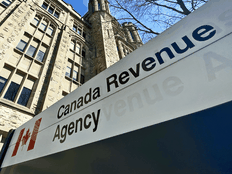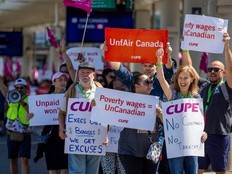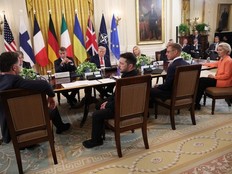GOLDSTEIN: Electing Carney will mean cutting our economic throat

Article content
Of all the reasons not to elect Mark Carney as the next prime minister of Canada on Monday, his history as the world’s leading corporate booster of achieving “net zero emissions” by 2050 is the biggest.
Putting Carney, the UN’s Special Envoy for Climate Action and Finance, and co-chair of the Glasgow Financial Alliance for Net Zero — “relentlessly, ruthlessly, absolutely focused on the transition to net zero” in Carney’s words — will mean cutting our own economic throat.
Carney believes carbon taxes are too low, when in the real world most of the world’s countries, including the United States, do not have a national carbon tax.
This already puts Canadian industry, and in particular our oil and gas sector, at a competitive disadvantage.
While Carney has scrapped former prime minister Justin Trudeau’s hated consumer carbon tax he plans to — his words — “improve and tighten” Trudeau’s industrial carbon tax, which in the real world means making it more costly and less transparent.
He claims these improvements will mean that only “big polluters” will pay his carbon tax, which is nonsense since in the end any form of carbon pricing results in higher prices or higher taxes for the public.
Indeed, that’s the purpose of carbon pricing.
Carney claims his new and improved industrial carbon tax — details to come — will provide financial incentives for Canadians to lower their carbon footprints, which is what the consumer carbon tax he just scrapped was supposed to do.
He will also impose a new carbon tariff on Canadians — that’s right, a tariff, known as a “border adjustment mechanism” — on imported goods coming from countries his government determines are not doing enough to fight climate change.
In the real world, that will raise prices Canadians pay for these products in the middle of an ongoing affordability crisis.
Under the Trudeau Liberals’ decade in power, Canada experienced the worst record of economic growth since the government of R.B. Bennett during the Great Depression, in part because of their unrelenting attack on Canada’s energy sector, part of their so-called climate plan, for which federal taxpayers are paying more than $200 billion.
This massive boondoggle is nowhere near achieving the Liberals’ target of reducing Canada’s industrial greenhouse gas emissions to at least 40% below 2005 levels in 2030, on the purported way to net zero by 2050.
According to the federal government’s latest available data from 2023, Canada’s emissions were 8.5% below 2005 levels.
To achieve 40% in 2030 would require the equivalent of eliminating all annual emissions from Canada’s transportation and building sectors in seven years.
That would require the Canadian government under Carney to impose massively higher carbon taxes than Canada has today, with continuing increases to achieve his target of net zero emissions by 2050.
In fact, the only way to achieve it would be for the government to deliberately pursue policies that would provoke a massive recession.
That’s because Canada’s emissions have only significantly decreased twice in the modern era — during the 2008-2009 global recession and in 2020 during the first year of the pandemic.
Emissions only drop significantly during recessions because people have less money to buy the goods and services created using fossil fuel energy, which means almost all of them.
A real-world example of this is that Brookfield Asset Management, the company that Carney used to chair, has billions of dollars invested in fossil fuel energy projects, which makes its claim of having achieved “net zero emissions” utter nonsense.
In Canada’s case, all this economic suffering would have no effect on climate change.
That’s because, as parliamentary budget officer Yves Giroux has noted, Canada’s emissions, at 1.5% of the global total, are too small to materially impact climate change.
The way we could meaningfully impact climate change, as Conservative Leader Pierre Poilievre is advocating, is to develop the necessary infrastructure to export our massive natural gas resources — Canada is the world’s fifth largest producer — globally, in order to replace the use of coal to generate electricity.
Because natural gas burns at half the carbon dioxide intensity of coal, this would be the single most effective way to lower global emissions — another reality the Trudeau government ignored during its decade in power.
In the real world, electing Carney and the Liberals on Monday will inevitably result in buyer’s remorse when the full impact of his “net zero” policies on Canadians are revealed.













Postmedia is committed to maintaining a lively but civil forum for discussion. Please keep comments relevant and respectful. Comments may take up to an hour to appear on the site. You will receive an email if there is a reply to your comment, an update to a thread you follow or if a user you follow comments. Visit our Community Guidelines for more information.